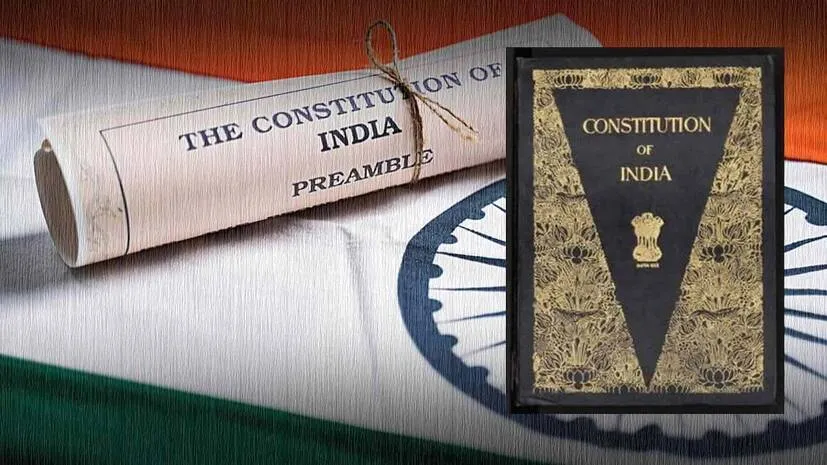

Democracy is not supported by four unequal platforms, but by four equally elevated pillars. These pillars— the legislature, the executive, the judiciary, and the media—must remain balanced in height and strength for democracy to remain stable. If any one of these pillars rises above or falls below the others, democracy is naturally bound to falter. Among these four, the debate over supremacy is most intense between the legislature and the judiciary. Who holds greater authority in the country—the body that makes laws or the courts that ensure justice? This question of “who stands above whom” continues to be raised from both sides. Recently, Chief Justice of India BR Gavai stated that the Constitution is supreme in India. This came as a response to Vice President Jagdeep Dhankhar’s earlier comment that Parliament holds ultimate authority in the country.
The Vice President based his assertion on the fact that Parliament, with majority support in both houses, has the power to even amend the Constitution. Technically, this is not incorrect. However, Article 368 of the Constitution, while granting Parliament the power to amend the Constitution, also clearly states that such amendments cannot alter the “basic structure” or essential nature of the Constitution. This leads to the ongoing debate: who truly holds supreme authority? This fundamental question was addressed in the landmark 1973 Kesavananda Bharati vs. State of Kerala case, where the Supreme Court ruled that while Parliament can amend the Constitution, it cannot alter its basic structure. Since then, this historic verdict has been the cornerstone in all constitutional interpretation.
The Constitution does not explicitly list what constitutes the "basic structure," but it is generally accepted to include elements such as national sovereignty, decentralisation of power, judicial review, federalism, secularism, the independence of the judiciary, parliamentary democracy, and fundamental rights. Parliament has no authority to dilute or undermine any of these through amendments. In the Kesavananda Bharati case, the state government argued in favour of the constitutional right to social justice. Any amendment that undermines such a principle is not permissible. Furthermore, not every law passed by the legislature or executive order issued by the government is necessarily constitutional. Courts have the power to review such actions for compliance with the Constitution.
The Constitution is the foundation of both the sovereignty of the nation and the fundamental rights of every citizen. It is upon this foundation that the four pillars of democracy rest. Every law passed by legislatures, every executive action, every judicial verdict, and every intervention by the media must uphold the spirit and purpose of the Constitution and remain within its boundaries. If the structure, functioning, and oath of Parliament are all derived from the Constitution, how can anything claim supremacy over it? Beyond all this, Chief Justice Gavai's assertion that judges must not base their decisions on popular opinion, but must think independently, should be seen as a guiding principle for all judges across the country.